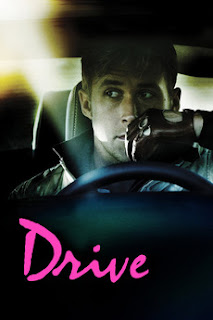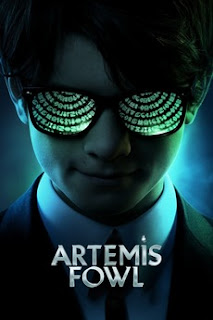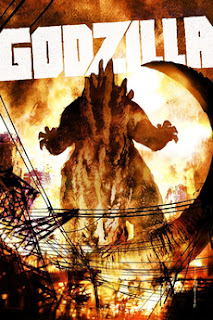Drive - Movie Review
Grade: A+
You ever had that film that you remember loving years ago on first viewing, but get worried you inevitably decide to rewatch thinking your initial impressions could be viewed as wearing rose-tinted glasses?
And then you watch it and realize how stupid you were worrying about that in the first place. Yeah, that's Drive for me.
Drive was released in 2011 and was directed by Nicolas Winding Refn. Starring Ryan Gosling, Carey Mulligan, Bryan Cranston, Christina Hendricks, Ron Pearlman, Oscar Isaac, and Albert Brooks. The film centers on Gosling's unnamed Hollywood stunt driver, who also works as a getaway driver. He finds himself attracted to his neighbor and her young son. When her husband returns home from prison while saddled with debt, the two men take part in a robbery with disastrous repercussions for everyone involved.
I'd remember when the film first came out to a rather polarized reception. Critics loved it, and Drive found itself a fair amount of awards and recognition as one of the best films that came out in 2011. Audiences though we're much more split, however. Due to the trailers promoting the film as a big crazy car chase spectacle, many were left disappointed when they find out the final film never had that intention in the first place(A dumb woman even tried to sue the film for that reason). There are action scenes in this film that are extremely thrilling to watch and supremely filmed, but that's not what makes Drive special.
What truly elevates the film far and beyond what looks like on paper a fast and furious clone is its focused dedication to exploring our main character's mind without so much as giving him an expanded backstory or even a name. But the film proves that two things are less than required because we learn everything we need to in the film's opening segment. He's a professional of his craft, who clearly had more history than the robbers who hired him for work. He has a clear set of rules. And due to that implied history, he has lived in his own world that is more or less separated from the rest of humanity, except for Bryan Cranston's character.
But most importantly, he is in a constant state of moral conflict. If the film is about anything, then Refn simply wants to ask one question. Is the Driver a frog or a scorpion? Visually he could be seen as the former due to his attire choice, having a scorpion on the back. But through some of the actions he's chosen to commit and the method he employs while giving credence to him truly being someone that is the worst of circumstances, he would be a terrifying figure capable of dueling grizzly amounts of violence.
He's a man who longs to live a normal life but can't escape his criminal background. Especially when he choices to commit to being one for the first time. He makes for a very tragic lead character. Someone we can emphasize with. Someone we can feel afraid for. And someone that we might arguably be afraid of. And none of this would land as well as it does would it not be for the incredible performance courtesy of Ryan Gosling. Having less dialogue than most of his fellow cast members, Gosling truly says so much with so little through his eyes and gestures to what may be the high point of his career. Which is saying something knowing the caliber of talent he's capable of.
Truly this top-notch cast of actors fires on all cylinders and add so many layers of history and humanity through their work in this film. Carry Mulligan makes for a very likable and sweet love interest that bounces off of Gosling's stoic demeanor very well. Cranston and Pearlman add a bit of humor to the film while still showing a considerable amount of dramatic acting talent. But the real surprise has to be Albert Brooks as one of the film's central antagonists. While primarily known for taking central stage in comedy projects, Brooks adds a dark layer to the role that adds so many layers of tension to every scene. It one of the best cases of an actor going against type-casting that I've had the delight of seeing.
But moving aside from the narrative and performances, this film is just so beautiful to look at and listen to. While his other films tend to be more divisive, it is universally agreed that his sense of framing the cinematography is nothing short of being a visual splendor. There's such a strong emphasis on lighting, particularly the use of shadows used beautifully to illustrate how to distance the Driver from the world around. Take note of all the shots where we as the audience are looking at a reflection with him and another character with him being drenched in shadows. It's essential, too, since so much of the narrative weight is told purely through visuals. And that soundtrack. Aside from the retro song choices that fit perfectly in the film regarding thematic heft, the rest of the score adds to Drive's atmosphere and the neo-noir feel. It is almost capable of telling the story on its own shoulders.
Unlike when this film first came out, people tend to talk warmer about Drive nowadays. Mainly because most people now understood what it was truly going for in the first place. It's one hell of a hard-edged art house feature woven with extreme style and violence. But more importantly, it's told with a genuinely compelling narrative centered on the themes of loneliness and what happens when we fail to rise above our darkest impulses. And when you add such top-notch filmmaking and performances on top of that, the results are too near cinematic perfection.
One of my all-time favorite films.



Comments
Post a Comment